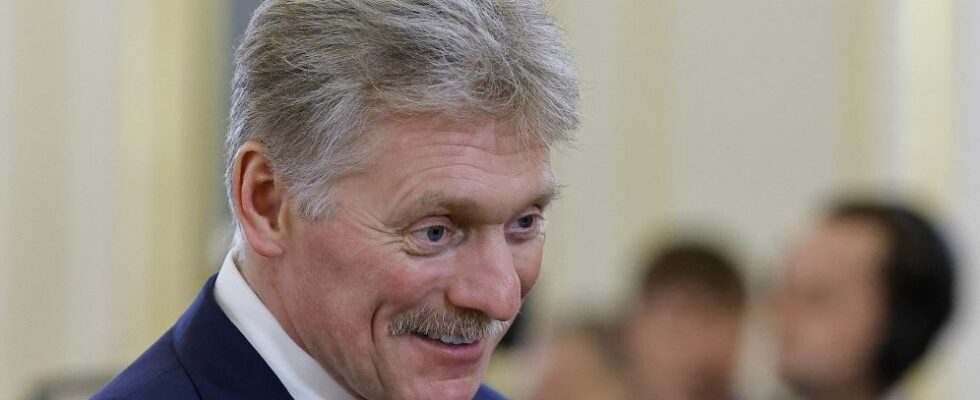Did you miss the latest events on the war in Ukraine? 20 minutes takes stock for you every evening at 7:30 p.m. Between the strong declarations, the advances on the front and the results of the battles, here are the main points of the day.
The fact of the day
The peace conference on Ukraine, which brought together more than 90 countries last weekend in Switzerland, in the absence of Russia and China, resulted in “zero” results, the Kremlin estimated on Monday. “If we talk about the results of this meeting, they are close to zero,” Russian presidential spokesperson Dmitri Peskov quipped to the press. According to him, many of its participants understand “that any serious discussion has no future without the presence of Russia.”
The overwhelming majority of the more than 90 countries present agreed on Sunday that “dialogue between all parties” and respect for Ukraine’s territorial integrity was the path to end the Ukrainian conflict. But neither Russia nor China were represented in Switzerland and the final communiqué did not receive the support of countries such as India, Saudi Arabia and the United Arab Emirates, considered close economic partners of Moscow.
Vladimir Putin declared on Friday that he would negotiate with Ukraine in the event of withdrawal of Ukrainian forces from the four regions he claims and when kyiv has given up joining NATO. In the process, Volodymyr Zelensky rejected what he said was an “ultimatum”.
Today’s statement
“ “It may seem like a paradox but the path to peace goes through more weapons to Ukraine” »
The words were spoken by Jens Stoltenberg, Secretary General of NATO, this Monday, from Washington. The leader of the alliance, who will soon give up his post, calls on Western countries to do even more to help Ukraine resist Russian assaults. He highlighted the fact that NATO will take over Western military support for Ukraine until now led by Washington, as decided by NATO defense ministers last week. He also assured that “more than 20 countries” had committed to increasing their military spending to 2% of their GDP, as the alliance has long demanded.
“At some point, the Allies must impose a cost,” said Jens Stoltenberg, emphasizing that Beijing “is fueling the largest armed conflict in Europe since the Second World War.”
NATO, with the United States in the lead, is increasingly criticizing aid to the Russian war effort provided by China and its companies, which supply components and equipment supporting the defense sector. Russian defense.
The number
26. This is the number of Ukrainian pilots who will be trained within two years in France to pilot F-16 fighter planes. The training, which has just started, must last six months instead of the usual eighteen. “We are doing everything to ensure that this happens as quickly as possible,” the colonel who commands the base confides to a group of journalists.
Because time is running out: in mid-May, Ukrainian President Volodymyr Zelensky said he needed 120 to 130 F-16 planes to end Moscow’s domination in the air. A superiority synonymous with attacks on Ukrainian civilian infrastructure and obstruction of the movement of troops on the front line.
After a green light from Washington, the Netherlands, Denmark, Norway and Belgium committed to delivering 91 F-16 aircraft. The first are expected this summer. But to operate these jewels of technology, you need pilots capable of mastering at least flight techniques, identifying targets and handling weapons.
The French Air Force usually trains around 30 French pilots each year.
The trend
Vladimir Putin will be in North Korea on Tuesday and Wednesday, an exceptional visit at the end of which a strategic partnership agreement could be signed between these two countries that the West perceives as threats. Americans and Europeans have been worried for months about the accelerated rapprochement between Moscow and Pyongyang, accusing the North Koreans of delivering munitions to Russia for its assault on Ukraine in exchange for technological, diplomatic and food assistance.
Our file on the war in Ukraine
Vladimir Putin’s diplomatic adviser, Yuri Ushakov, presented the Russian president’s trip as a strong moment for the two countries which are under Western sanctions. “Important, very significant documents” will be signed, he told Russian media, referring to “the possible conclusion of a comprehensive strategic partnership agreement”.
This trip to Korea “shows the extent to which President Putin and Moscow are now dependent on authoritarian countries around the world,” criticizes NATO chief Jens Stoltenberg. According to the West, Pyongyang has drawn on its vast stocks of munitions to massively supply Russia, and the Pentagon last week accused Moscow of using North Korean ballistic missiles in Ukraine.

